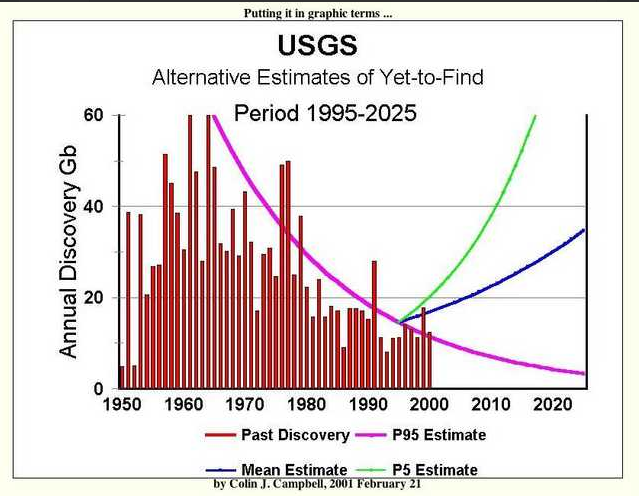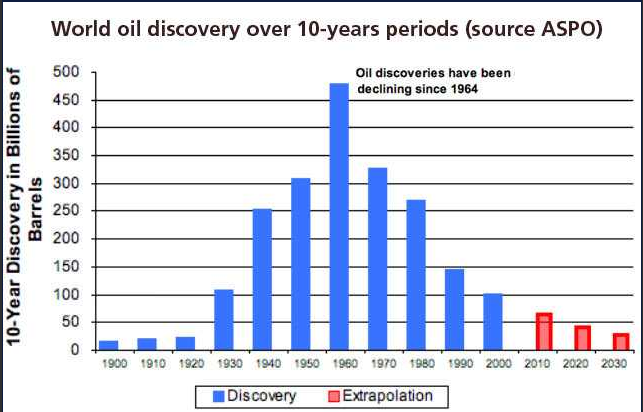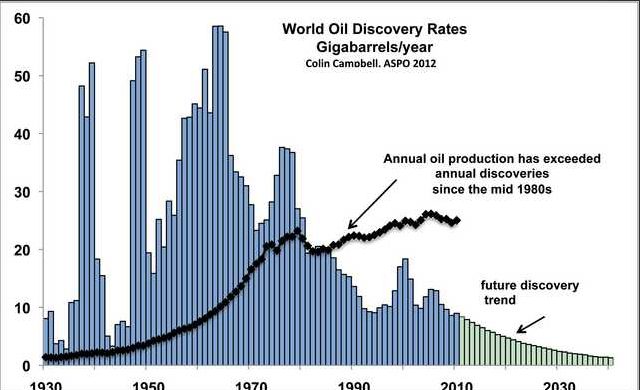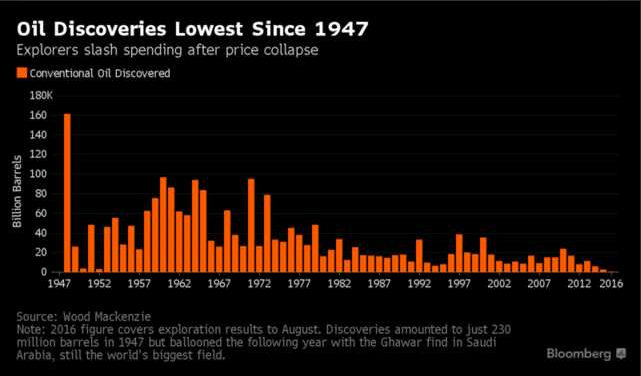Z/Acc Primer
Where the hell do I even start with this absolute megalodon of societal pessimism? Well let’s start from the one titbit we have with regard to Z/Acc, this tweet:
R/Acc: An increasing proportion of the industrial surplus is being absorbed by the task of masking bio-social deterioration.
Z/Acc: Over 100% soon.
U/Acc: Oh c’mon.
L/Acc: Look, a squirrel!— Outsideness (@Outsideness) February 21, 2018
It’s cute isn’t it? In fact, you’re now within the camp of people who know the entire Z/Acc Twitter lore, yep that’s it. And I know what you’re thinking, ‘Wait, that’s it? How and why do I keep seeing ‘Z/Acc’ everywhere on Twitter? I mean there hasn’t even been a badly formatted, unnecessarily long WordPress post on the topic ye-‘
Welcome, my friends, to the Z/Acc primer.

Endre Tot.
What does the Z of Z/Acc actually stand for you ask? Zero. Zero/Accelerationism or Zero Acceleration, the proposition of Z/Acc is that we’re not, or we’re not going to accelerate, not the process of deterritorializing capital, we’re not going to accelerate actual progress, overcoming, capital, utopian dreams, nothing…we’re going to accelerate absolutely nothing. However, at this stage that makes Z/Acc hardly different from collapse culture, secular eschatology or industrial meltdown, does it? I mean, saying that we’re not going to progress is hardly novel, there’s hundreds of books on the topic by plenty of conspiratorial nuts. (I’ll probably list a few to be quite honest.)
Anyway, let’s assimilate Z/Acc into the actual theory of Accelerationism, no one has yet done this, perhaps because Z/Acc is just too pessimistic, even for those weirdos on Twitter. Accelerationism is inherently a theory of time. Whether you take that time as McKenna’s timewave zero phase-esque thing, “Accelerationism is a demon, not an ideology” (as noted by Amy Ireland) or complex integration of economic means of escape via Kantian time. Either way, Acc is a theory of time. L/Acc wish for time to work in the typically mistaken (in my opinion) progressively linear fashion, and for time to work in their favor with regards to propagating a technological utopian (Marxist) society, complete with UBI‘s and all that meaning eroding jazz. R/Acc, in its initial formation and on what would be considered a material-chronic spacio-temporal plane – common reality – has not chained itself to the archaic theory set in chronic time, and as such acts as a reterritorialization movement in relation to L/Acc’s consistent compiling of ignorance. “You’re getting it wrong again, here’s what we might have done had you not overstepped your means…again.”
R/Acc’s inherent understanding of agency within unhinged time allows them to acquire the blackpill-visors and metaphorically witness capital’s convergent lasso come forth. With L/Acc searching for the – supposed – true agent of acceleration exterior to capitalism, which in the view of R/Acc is capitalism itself. Thus the spectrum upon which both L and R/Acc coexist is one of ontology, wherein one side (L/Acc) promote an ontologically objective structure of time, with humanities agency at the wheel, and the other end (R/Acc) accepting the ontology of the future as a constant. R/Acc accept that capital is critique. A rock dropped into water ripples outwards, reverse these waves and they culminate at the event of the rock’s splash, apply this metaphor to time and we have to ask what is controlling the waves, and what is the event. Put in a stupidly simplistic manner we might say that the waves are controlled and are themselves capital and the event is the Singularity. Hell, this is old hat, you can delve further if you like, I recommend the early NCRAP Lectures with Land.
So what does this make Z/Acc if acceleration is inherently temporally based. It makes it god-awful. A strange theorization of stagnation within a theory which is ever moving. Z/Acc seen from a layman’s point of view would be the immanentization of Gnon into the schema of man, let’s bring the attitude of Gnon to the fore and witness his apathy in relation to ‘Accelerative-man’. It’s tough to really talk of stagnation in a way appropriate for what springs to mind when I think of Z/Acc. Hell, perhaps Land said it best when he mentioned that the ‘Z’ of Z/Acc can quite aptly be replaced with ‘Zombie’. Let’s talk this hellish future of zombified, zero acceleration!
“and the story of the boy who cried wolf has two additional morals not often remembered: first, the wolves were real; second, they ended up eating the sheep.” – Greer, ‘The Twelfth Hour’.
In fact let’s begin with something Greer is very keen on bringing to the fore and something he expounds upon in great detail within his book The Long Descent (here) – a book which acts as a Z/Acc primer of its own, so let’s begin not with any external specifics acting upon civilization, but the inherent mistake civilization makes of itself, catabolic collapse:
Catabolic Collapse – in short:
Firstly, the classical collapse. Societies – according to Tainter (1988) – begin to break down once they reach a certain level of complexity, that level is such wherein a decrease in complexity would yield benefits to society. This is where acceleration stops, by the way. Each breakdown in social complexity leads to fragmentation into a lesser form of complexity, society becomes simpler as it breaks down. This is the traditional form of collapse, largely sociopolitical. Now one could argue that accelerating the process here would allow for the actualization of a patchwork of micro-states, many – or a few – of which would be able to create for themselves an accelerative society.
So what of catabolic collapse, “The theory of catabolic collapse, explains the breakdown of complex societies as the result of self-reinforcing cycle of decline driven by interactions among resources, capital, production, and waste.” (Greer, How Civilizations Fail)
Don’t tell those optimistic techno-capitalists, but feedback-loops work the other way too.
Resources (R): Naturally occurring exploitable resources (Iron ores etc),
Capital (C): Factors incorporated into the flow of society’s energy (Tools, food, labour, social capital etc.)
Waste (W): Fully exploited material that has no further use.
Production (P): Capital (C) and Resources (R) are combined to create new Capital (C) and Waste (W)
So from these constants (which are very simplistic as a means for ease of understanding this) we can begin to outline basic states of a civilization:
Steady state (SSv1): New capital from production to equal waste from production and capital [ C(p) = W(p) + W(c)] = SSv1
C(p) = New capital produced = W(p) existing capital converted to waste in the production of new capital inclusive of W(c) existing capital converted to waste outside of production. W(p) and W(c) is M(p), maintenance production. M(p) maintains capital stocks at existing levels. So:
SSv2 = [C(p) = M(p)]
In the absence of growth limitation capital can consistently be brought into the production process, making this process self-reinforcing, so, SSv2 = The Expansion of the USA during the 19th century. This self-reinforcing process may be called an anabolic cycle. It’s limited by two factors that tend to limit increases in C(p): Firstly resources which are finite, and as such have a ‘replenishment rate’ (r) or [r(R)]. This replenishment rate is largely due to natural processes and out of man’s control, leading into the Law of Diminishing Returns. Also these resources r(R) have a rate of use by society [d(R)] and the relationship between d(R) and r(R) is a core element of the process of catabolic collapse.
Resources used d(R) faster than their replenishment rate r(R) become depleted: d(R)/r(R)>i. This resource must be replaced by capital to sustain maintenance and as such the demand for capital increases exponentially as d(R) and r(R) both simultaneously increase. And so, unless you live in a society with unlimited resources, or resources that have unlimited replenishment (You don’t.) then C(p) cannot increase indefinitely because d(R) will eventually exceed r(R), society will use more shit than it has, basically. You can go a little further with r(R), because the processes of society are always reliant on the minimum resource, this is known as Liebig’s law.
Resource depletion – as shown above – is the first factor in overcoming the momentum of an anabolic cycle. The second is the relationship between capital and waste. M(p) rises and W(c) rises in proportion to total capital, alongside the fact that as M(p) rises, C(p) also rises as increased production requires increased capital – self-reinforcing – and this of course increases W(p). One must utilize these when studying the end of anabolic societal cycles wherein a civilization has two choices.
Choice 1: is SSv1.1: C(p) = M(p) and d(R) ≤ r(R) for every economically significant resource. We could call this Sustainable Steady State – Man not being silly. (I am avoiding here how to bring this about via societal controls, it’s not my aim.)
Choice 2: ACC-Sv1: Accelerative State V1: Accelerate the intake of resources through military conquest, innovation of techno-capital etc. (Accelerate the process). This of course increases both W(p) and W(c), which go on to further increase M(p). This means only one thing, a society that wishes to remain anabolic must expand its resource base at an ever-increasing rate to keep C(p) from dropping below M(p). If society fails to achieve this ever-increasing rate then it enters into contraction: nC(p) < M(p). Meaning capital cannot be maintained and is converted into waste, populations begin to decline, disintegration of social organizations, societal fragmentation and decentralization, loss of information. These societies can return to SSv1.1 if they bring d(R) back below r(R). But what is they do this…this: [d(R)/r(R) > 1]. That, right there, is the most simple way of explaining the majority of civilization’s problems, that means that M(p) exceeds C(p) and capital can no longer be maintained, resources deplete etc. This eventually results in the catabolic cycle of self-reinforcement in which C(p) stays below M(p) whilst both decline. C(p) approaches zero whilst capital is converted to waste.
(Once again, this is largely from John Michael Greer’s How Civilizations Fail: A Theory of Catabolic Collapse.)
And there you have it, the basics of collapse. That’s excluding the general ignorance, stupidity and arrogance of humanity and other societal defects, but by and large that’s the route in which we create our own demise. There’s of course other factors effected by us which I shall list a few of, but the theory of catabolic collapse is central to the Z/Acc debate in terms of accelerationist theory. The average time it takes for a society/civilization to collapse is 250 years by the way, so don’t fall into the trap of thinking you’re safe.
So what of Z/Acc here. I think it’s a fairly simple task to materially understand how stagnation will happen within a civilization now, however, does this have much to do with the temporal theory of acceleration? It certainly throws into the air questions with regards to the means of which capital wishes to propagate its longevity and continuation. Perhaps a hegemonic, global method of control simply isn’t appropriate. Ever feel like you’re in a giant test-kit for capital? Well, perhaps capital now wishes to downscale into a microcosm of intelligence wherein production is acceleration focused. The tendrils of future capital are hitting against unexpected d(R), fucking humans and their robotic Santa toys. [Systems of] Capital is generally ignorant of the finite. And so a proposal would be to retain humanity within smaller and smaller microcosms of M(p) as a means to have greater control over d(R) and W. Z/Acc is the reset button, except pressing it to completion takes roughly 250-1000 years.
The Myths We Tell Ourselves:
I wrote about this further in my post Greer’s Future, but in short:
However, there’s another very specific idea that invades Greer’s work consistently. Often directly, but more often it sits quietly at the sidelines, smirking at its own reality. And this is Greer’s almost a priori notion that civilizations collapse, end, stop-being etc. With Greer the possibility for anything to end is always possible. This seems quite obvious, right? Well, not so. People hate to think that even their most luxurious comforts – ones that have always been around – would cease to be. So why would they even start to believe in a world where the basics will become a struggle?
Also specific to the Greerian reality is the fact that semantically collapse is quite commonly mistaken for an instantaneous event. This is quite simply wrong, in fact, it’s so wrong it exists solely in the realms of escapism and quasi-romanticism. No wonder the amount of post-apocalyptic media has increased in recent years, I mean what other generation(s) yearn for a reset button more than those who’ve been promised so much and allowed so little. Media such as Fallout, Mad Max, The 100, The Walking Dead etc aren’t truly horror, not really, for the simply fact that humans are still around and not only are they doing fine, they’re actually doing quite well and in someways progressing in healthier directions that their previous societies. And so at heart all these programs, games etc. is – at the very least – optimism, but also a perception of time in relation to collapse which is simply wrong. We think of ‘collapse’ as the collapse of a table or chair, a quick successive tumble of parts, yet once that which is collapsing grows in complexity (a civilization for instance) then the process of collapse becomes far, far longer. Emphasis on process here, the process of collapse will see chunks of civilization fly of and attempt to be replaced or repaired in relation to their previous standard, slowly but surely everything sort of disintegrates at such a rate that those living within it only notice the stark difference in conditions years later.
The myth we tell ourselves is deeply routed in modes of binary thinking of black and white, wrong and right etc.. A mode of thinking that’s ever-growing in society. It’s the difference between apocalypse and SSv1 (Steady state society), we’re either fine, or it’s all over. We’re never simply descending into chaos, things never truly get worse it seems because we’re always replacing the ‘worse’, smothering it with some new form of innovation that makes it look better. The myth we tell ourselves in everyday life are along these lines:
“They’ll think of something…”
“The world’s fucked, everyone knows that, better to not think about it.”
“It wont be that bad…”
And on and on with your dull co-workers, the equivalent of putting your fingers in your ears and shouting “La la la la la la!” whilst food prices rise, death tolls rise, roads aren’t repaired, certain trees and species die etc.
Here is a list of apocalyptic predictions. There’s something which connects all these in relation to their understanding of collapse and apocalypse. The date can be plotted on a chart, it’s an instantaneous event. That’s the myth. We’d love for that to happen. If everything changes all at once then we only have to deal with those consequences, not the ones we’re within right now. The inverse or this, is the myth of progress, which can aptly be assimilated onto Christian eschatology:
“Over the last three centuries or so, Christianity’s influence on the Western intellect has crumpled beneath the assaults of scientific materialism, but no mythology has yet succeeding in outing it from its place in the Western imagination. The result has been a flurry of attempts to rehash Christian myth under other, more materialistic names. The mythology of progress is itself one examples of this sort of secondhand theology. Marxism is another, and most of the more recent myths of apocalypse reworked the Christian narrative along the same lines that Marx did, swapping out the economic concepts Marx imported to the myth for some other set of ideas more appealing to them or more marketable to the public.” – Greer, The Long Descent
Peak Oil:
Peak oil is the theorized point in time when the maximum rate of extraction of petroleum is reached, after which it is expected to enter terminal decline. Peak oil theory is based on the observed rise, peak, fall, and depletion of aggregate production rate in oil fields over time. It is often confused with oil depletion; however, whereas depletion refers to a period of falling reserves and supply, peak oil refers to the point of maximum production. (Hubbert peak theory)




Z/Acc Externals I: Climate
Long Term Effects of Increased Carbon Dioxide. (I and II)
Planetary Vital Signs – NASA
Climate Change Summary – Guy McPherson
Collapse Data Cheat Sheet – Loki’s Revenge
Soil and Water Realities – Loki’s Revenge
Tech vs Climate Change – Yale Environment
The Myth of Solar Energy – Liam Scheff
Wind and Solar Will Save Us Delusion – Our Finite World
Renewable Energy Wont Save Us – Futurism
2018 Warmest Year on Record – Science
Renewable Delusion Lecture – Dr Vaclav Smil
Z/Acc Externals II: Attitude
Human Optimism Disallows the Reality of Apocalypse – Nature Neuroscience
The Myth of Progress – Do The Math
Extinction Anxiety – Carolyn Baker
The Telltale Signs of Imperial Decline – Charles Hugh Smith
Reality Denial and Optimism – Chris Hedges
The American Dream – Doomstead Diner
Overworked Peasants – more C(p) needed for M(p) – Business Insider
Z/Acc Externals III: Economics
Great Depression 2.0 – Press Herald
Global Bear Market 2019 – CNBC
Corporate Buybacks Feedback Loop – CNBC
Germany Recession – Business Insider
Paycheck-to-paycheck Living Increasingly Common – The Inquirer
£1.5 Trillion in Student Debt – Newsrep
Slow Growth China – The Guardian
UK Financial Crisis – The Week
Yield Curve First Inversion – Bloomberg
Price Rises in U.S. – France24
Z/Acc Reading List:
Fundamentals of Ecology – Eugene P. Odum (Or any basic textbook on ecology.)
The Limits to Growth – Dennis Meadows, Donella Meadows, Jørgen Randers, and William W. Behrens III
Overshoot – William R. Catton Jr.
The Decline of the West – Oswald Spengler
A Study of History (Abridged) – Arnold Toynbee
Where the Wasteland Ends – Theodore Roszak
Collapse Now and Avoid the Rush – John Michael Greer
The Long Descent
Dark Age America
Retro Future
The Collapse of Complex Societies – Joseph Tainter
thanks for this (now officially z/acc is more well theorized than whatever r/acc is that isn’t u/acc, but anyways).
one thing that keeps popping in my head as i read greer is: okay, catabolic collapse can explain fluctuations in complexity, but it doesn’t account for the constant complexity growth in universal history. in other word, at some point, things always *were* different.
The Z doesn’t stand for zero, it stands for zombie.
http://www.xenosystems.net/category/zombie/
Arguably they’re interchangeable. Zombification will lead to zero. Zero is inherent within Acc dynamics.
[…] as a way for stable homes and happy families. Also, Five Friday Reads from Mr. Landry, including this article on Z/Acc or Zero Accelerationism. I’m not so sure I got it after one time through, but some excellent thoughts on societal […]
I’d advise you to remove Guy McPherson from your references. He’s been repeatedly debunked as a poor scientist and he’s predicted that we’d all be dead by now five or six times. More serious collapsniks (Dmitry Orlov in particular) have described him as a joke. Your reading list is pretty good but I think it ought to include Orlov’s Five Stages of Collapse and Vaclav Smil’s new Energy and Civilisation: A History.
I did wonder about putting McPherson in there, the name rang alarm bells but I couldn’t remember why, I’ll review the list, and check out your recommendations. Thanks.
We’re falling down a hole that looks like up.
[…] U/ACC outlook, with strong sympathies towards the right side’s Z/ACC […]
[…] Meta-nomad, Z/ACC Primer […]
Perhaps a minor point in relation to the piece over all but this:
“With L/Acc searching for the – supposed – true agent of acceleration exterior to capitalism, which in the view of R/Acc is capitalism itself. Thus the spectrum upon which both L and R/Acc coexist is one of ontology, wherein one side (L/Acc) promote an ontologically objective structure of time, with humanities agency at the wheel”
is quite confused. The L/Acc criticism of the R/Acc equation of capital with deterritorialisation is emphatically /not/ that “humanity” is really at the helm, but that R/Acc conflates the forces and relations of production. It’s worth noting that this is a point on which Land had to break with D&G in order to formulate his theory; for D&G the process of deterritorialization would eventually of necessity dispense with capital, which is identified far more with /reterritorialization/ in this view than Land’s. Which could be right or wrong ofc, but the alternative is absolutely not between right-antihumanism and left-humanism
[…] thought has came into its own with Metanomad’s Z/ACC or Zero-Accelerationism. In his Z/ACC Primer, Metanomad writes that “we’re not going to accelerate, not the process of deterritorializing […]
[…] [11] https://www.meta-nomad.net/z-acc-primer/ […]
jreg brought me here
Have you tried getting a different hobby?
There are some unlimited resources, e.g data (which is worth more then oil) but overall yeah ecology is not considered in capitalism.
[…] Ellisas, ypač savo tinklaraštyje, suformavo solidžią nulinio akseleracionizmo teoriją – autorius pripažįsta, kad tai, vis dėlto, labiau, švelniai tariant, pesimistinis projektas, įvardijantis tai, kad mes […]